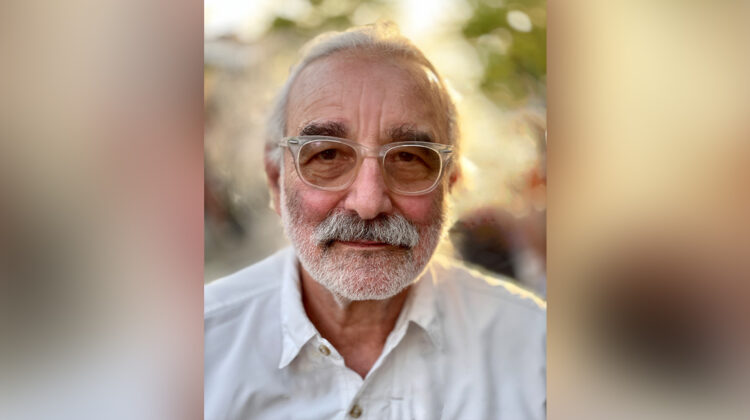For decades, one of the most feared diagnoses for aging adults has been dementia, an unpredictable, degenerative condition with no clear cure.
But Dr. Lawrence Fieman, a longtime Marblehead-based neuropsychologist, says hope is no longer wishful thinking. Thanks to recent research, he believes lifestyle changes may offer powerful protection — and even slow the disease’s progression in its earliest stages.
“It’s the most hopeful thing I’ve seen in dementia research in a very long time,” Fieman said during an interview last week. “And it gives people something they can actually do.”
Fieman, a practicing psychologist and neuropsychologist for more than 40 years, specializes in memory testing and cognitive health, with a focus on adults and caregivers.
Fieman points to the work of cardiologist Dr. Dean Ornish, whose recent study showed intensive lifestyle changes could slow the progression of early dementia caused by Alzheimer’s disease. Ornish’s randomized controlled trial, though small, used a combination of plant-based nutrition, exercise, stress reduction, and social engagement, and the results were encouraging.
“This is the first time we’ve really seen scientifically that lifestyle change might actually impact Alzheimer’s in a measurable way,” Fieman said. “Even if the study isn’t huge, it’s a clear direction — and it aligns with what we know helps prevent heart disease and some cancers.”
The heart-brain connection, Fieman says, shouldn’t be underestimated. Arterial sclerosis, the buildup of plaque in the arteries, doesn’t just lead to heart attacks and strokes — it also affects blood flow to the brain, a factor linked to cognitive decline and Alzheimer’s disease.
When it comes to prevention, Fieman doesn’t recommend worrying but rather informed action.
“Worrying won’t help you,” he said. “But understanding what a healthy lifestyle looks like — and taking steps toward it — can.”
According to Fieman, the most important lifestyle factor is nutrition, specifically a whole food, plant-based diet. While popular diets often claim to be “healthy,” Fieman stressed that the gold standard involves foods like lentils, beans, leafy greens, cruciferous vegetables, berries, and nuts — minimally processed and low in animal fats.
Even partial adoption of this diet can help, he said. “It’s not all or nothing, but the more you follow it, the more benefit you get.”
The Mediterranean diet, often cited by cardiologists, also aligns well with these goals, he added.
Exercise, good sleep, stress management, and social connection round out the list of impactful habits.
“If you enjoy walking your dog or spending time with your grandkids, that counts,” Fieman said. “You don’t need to do something extreme.”
Interestingly, Fieman noted even applying skin lotion may help by reducing the inflammatory compounds skin can absorb from the environment. And good sleep? Crucial. “It’s harder as we age, but nutrition and exercise help with that too,” he said.
According to Fieman, one of the most damaging myths about Alzheimer’s is that nothing can be done — or that it’s entirely genetic.
“That’s just not true,” he said. “While genes play a role, lifestyle has a huge impact. The more we learn, the more we realize that prevention is possible.
“No one is going to be perfect,” Fieman said. “But if you’re eating your vegetables, staying active, and maintaining friendships, you’re already doing so much for your brain. That’s the power of prevention.”
He also cautions against social media misinformation and studies funded by corporate interests, which often confuse rather than clarify. “The bulk of the science is pointing us toward the same conclusion: a healthy lifestyle matters,” he said.
While traditional medications like Aricept may provide a temporary mental boost, Fieman said they don’t stop the disease from progressing. “That’s why lifestyle interventions are so exciting — they offer real, long-term potential.”
Fieman runs a virtual practice that offers online dementia evaluations, including neuropsychological testing covered by Medicare. He’s also an allied health staff member at Mass General Brigham/Salem Hospital’s Department of Psychiatry and a clinical investigator in a study on mild cognitive impairment in Parkinson’s disease.
Over his career, Fieman has worked at North Shore Medical Center, Spaulding Rehabilitation Hospital, Danvers State Hospital, and Salem State University, among others. But it’s his current telehealth practice that gives him a unique vantage point on how everyday habits affect brain health — and why early, proactive steps matter.
Though he no longer meets patients in person, Fieman’s practice continues to serve local residents through HIPAA-compliant telehealth platforms. His services include virtual dementia evaluations and caregiver support, with access in up to 240 languages via live interpreters.
“A formal in-person evaluation can take up to a year,” he said. “I can offer something much sooner — and research shows it’s just as effective in many cases.”
Fieman also works with couples on communication, lifestyle decisions, and medical challenges, offering holistic psychological support grounded in evidence-based care. His work blends neuropsychology with nutrition, risk analysis, and long-term health planning.
He encourages anyone interested in a dementia screening or lifestyle coaching to visit his website: https://fieman.me/





